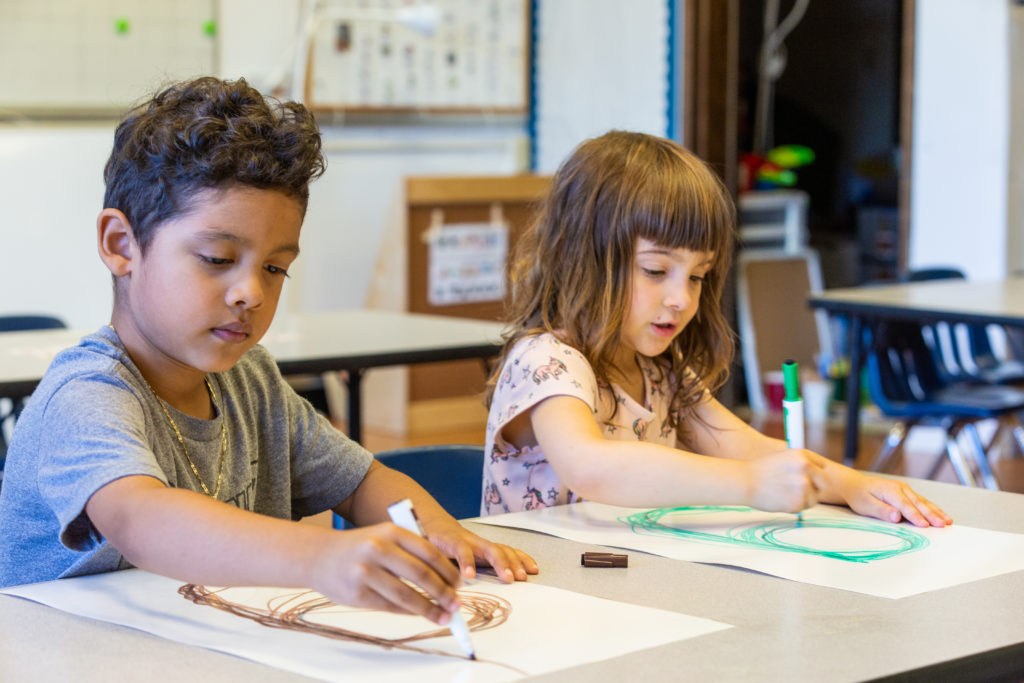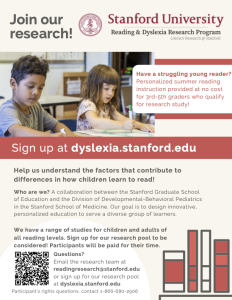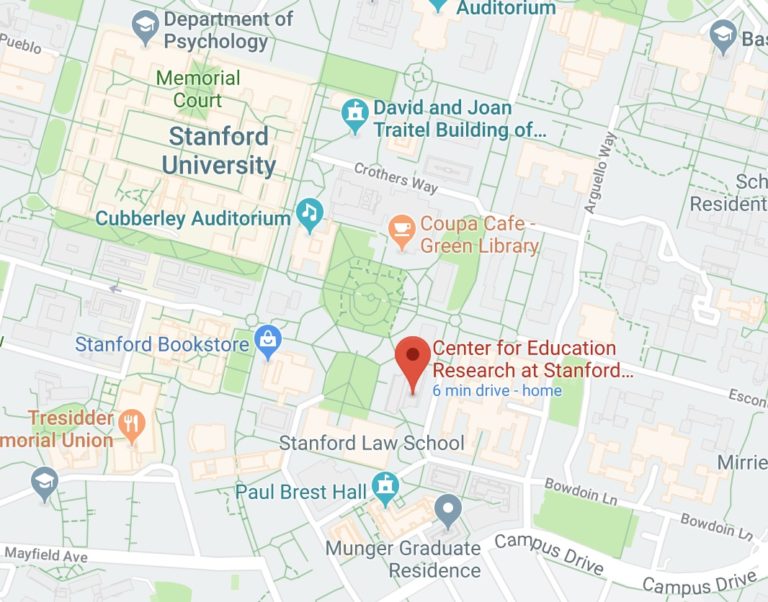PARTICIPATE IN READING RESEARCH AT STANFORD
Now recruiting children and adults at all reading levels!
Note for parents/guardians: if you are interested in registering more than one child, please fill out a separate form for each child.
2022 update: to stay safe and follow university COVID-19 guidance, our in-person studies are currently limited to low-risk populations. Our online studies remain open to everyone!
Who We Are
A collaboration between the Division of Developmental-Behavioral Pediatrics within the School of Medicine and the Graduate School of Education, the goal of the Stanford University Reading & Dyslexia Research Program is to understand the factors that contribute to differences in how all children and adults learn to read. With this knowledge we hope to design innovative, personalized education programs to serve the diversity of learners.
Why Literacy Research?
Reading is at the foundation of academic success, and children who struggle learning to read are at a disadvantage throughout their academic careers. Unfortunately reading disabilities cannot be distilled to a single, simple cause, meaning that there is no single solution that will be uniformly successful for all children. By understanding the mechanisms that explain learning differences, we hope to improve on literacy education for all learners. Thus, we run studies for a broad range of subjects (not just people with dyslexia), and we include subjects of all ages – starting early in childhood and going through adulthood. We take an interdisciplinary approach, spanning education, pediatrics, psychology, neuroscience and engineering to understand the factors that contribute risk for reading disabilities and what can be done to help people overcome these challenges.
Resources
Scientific research into the mechanisms underlying individual differences in learning has revolutionized our understanding of literacy and spurred the development of increasingly effective education programs for all types of learners. For more information on the science of literacy, see our publications. For more information on developmental dyslexia, and resources that might be available in the Bay Area, see our list of Resources for Parents.



